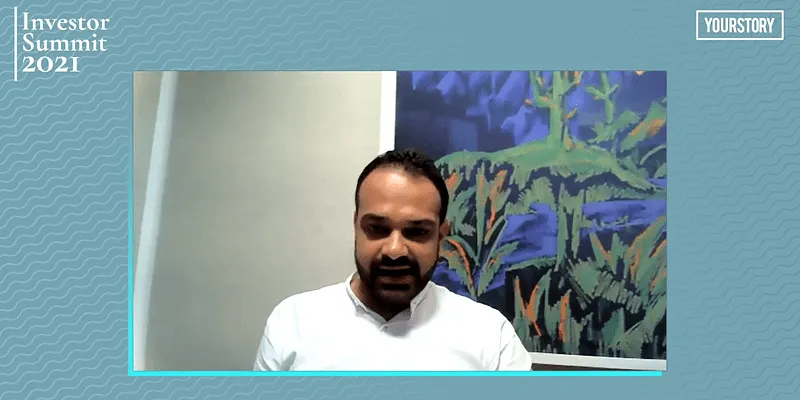[Investor Summit 2021] A dozen startups will come out with IPOs: Kashyap Chanchani, The RainMaker Group
Some of the startups that are expected to go for a capital market listing via an initial public offering this year include Zomato, Delhivery, Freshworks, PolicyBazaar, Nykaa, Flipkart, and Ola.
"There is a wave of exits in India’s startup ecosystem," says Kashyap Chanchani, Managing Partner, The RainMaker Group (TRMG) while speaking at YourStory’s Investors Summit 2021.
According to YourStory’s 2020 Annual Funding report, there was an increase in the number of internet and technology companies that went public last year. While earlier, companies used to take 20 years to file for an IPO, that gap has now narrowed to just three to five years. Now, a number of tech companies are lined up for IPOs in 2021. This is a significant shift from the earlier M&A route adopted by Indian tech companies.
Kashyap too affirmed the same at the summit. He said that a dozen startups in India will be coming out with their IPOs over the next year to 18 months, marking a new generation. Some of the startups that are expected to go for a capital market listing via an initial public offer this year include Zomato, Delhivery, Freshworks, PolicyBazaar, Nykaa, Flipkart, and Ola.
More IPOs or more M&As?
Along with IPOs, Kashyap also says that at the same time, M&A will become a lot more mainstream too.
“M&A used to be a cashless transaction, but today, there are green shoots of real cash,” he said, highlighting that traditionally SaaS and IT companies would get cash for an acquisition, but recently, the acquisition of Gurugram-based ValueFirst, a communications-platform-as-a-service provider, by San Francisco-based cloud communications firm Twilio, and BigBasket’s acquisition by Tata Group indicate fresh trends.
“If this does mean M&A is becoming mainstream, then I don't know what is,” said Kashyap.
However, he added that there would be more IPOs as compared to M&As. “We will probably end up doing close to 30 odd rounds this year of over $100 million. We will create about 20 unicorns, and at least a dozen pre-IPO rounds are going on in the startup ecosystem right now,” he said.

Kashyap Chanchani, Managing Partner, The RainMaker Group (TRMG)
Kashyap added that IPOs are more likely to happen in the Indian startup world because founders are also seeing that it's not a pipe dream anymore, rather it's an imminent reality for so many of their peers. And, this is positive for the ecosystem.
On the question about which is the best exit strategy — IPO or M&A, Kashyap categorically responded that companies in our startup ecosystem do not have the luxury to choose.
“Very very few companies have that luxury of either going IPO or exiting via acquisition because of the nature and industry of the company, and also the founder's intentions from the beginning,” said Kashyap. He said that in the end, both IPO and M&A is a combination of a lot of hard work, and also depends on the right market timing and who are the partners for the journey.
Kashyap tells that the questions around exits are coming front and centre in the boardroom discussions, and there is a maturity in the ecosystem, which is going to grow going forward.
About planning an exit, he suggests founders that once they have taken venture money and are two-three years into it, "it becomes very very important that you start giving at least 5 percent of your mind space towards an exit, and increase it to 20-25 percent by six to seven years after taking the venture money," Kashyap said.
For investors, Kashyap asserted that once investors enter the company, they should revisit it at least once in the initial years. And after that, it has to be an ongoing process where they are revisiting this particular topic, at least once a quarter with their other board members as well as with the founders and teams, so that they're able to keep an eye on the planned out "potential exit so that is not an apology exit but a real well-planned exit" he said.

Edited by Kanishk Singh


![[Investor Summit 2021] A dozen startups will come out with IPOs: Kashyap Chanchani, The RainMaker Group](https://images.yourstory.com/cs/2/b87effd06a6611e9ad333f8a4777438f/Kashyap-1596621100250.png?mode=crop&crop=faces&ar=2%3A1&format=auto&w=1920&q=75)





